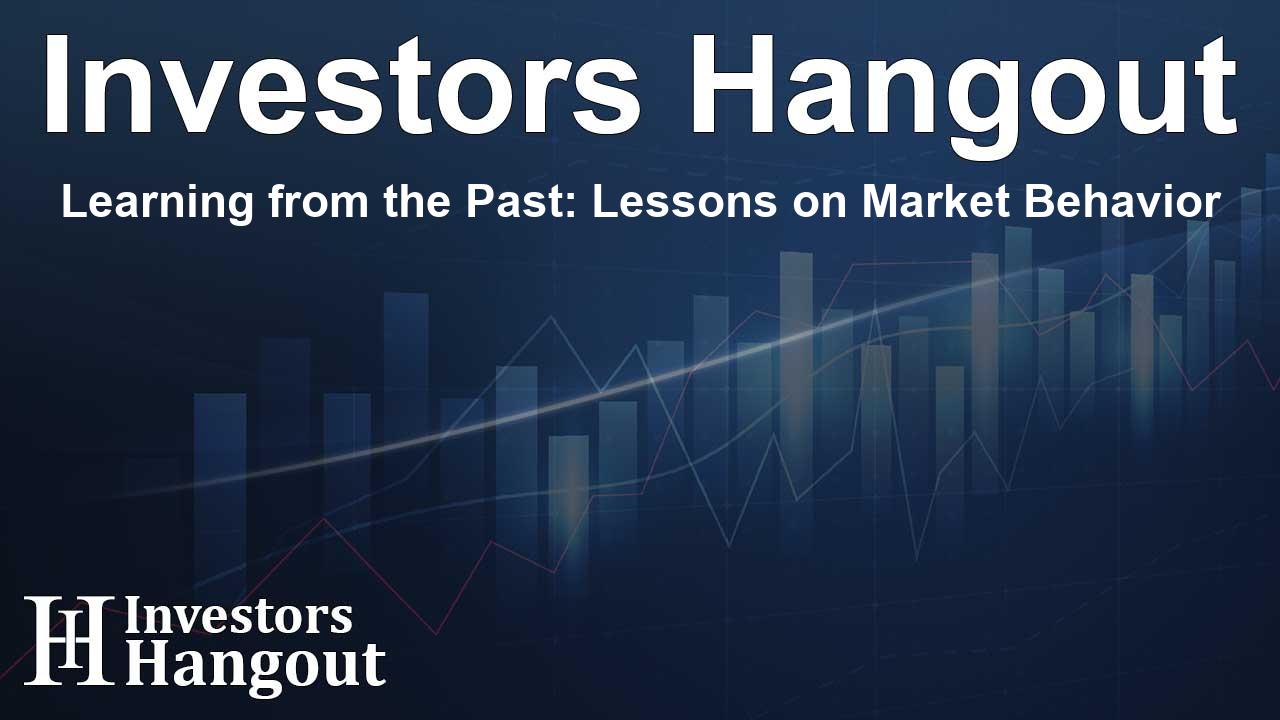Learning from the Past: Lessons on Market Behavior

Market Dynamics: A Lesson from Isaac Newton
The world of investing can be treacherous, even for those with the sharpest minds. History teaches us that emotions can lead to poor decisions, creating significant pitfalls for investors, no matter their intellect or expertise.
Take, for instance, Isaac Newton, renowned for his contributions to science and mathematics. However, his experience in the stock market highlights that intellect does not always safeguard against bad investments. Newton's involvement in the South Sea Bubble serves as a cautionary tale, demonstrating that even the greatest minds can succumb to market folly.
The Rise and Fall of Newton’s Investments
At first, Newton played the stock market expertly. He initially enjoyed substantial profits as prices soared, showcasing his acumen in recognizing lucrative opportunities. However, the excitement of rising stock values can be misleading. He eventually succumbed to the emotional pressures that many investors face, leading him to re-enter the market at its peak.
Like many before him, his decision to return proved disastrous. As the bubble burst, Newton witnessed his fortunes rapidly diminish. The experience left him with a reminder that market euphoria can cloud judgment, leading even the wisest to make grave errors.
Lessons from History: Staying Grounded
The past is replete with examples of caution winning out over impulsive decisions. Consider Warren Buffett during the Dotcom Bubble. While many others pursued short-term gains amidst the frenzy, Buffett chose to remain on the sidelines, understanding that true value would ultimately prevail. History confirmed his wisdom, as inflated valuations soon corrected themselves.
Today, we find ourselves in a similar climate, characterized by high valuations and fluctuating market sentiments. There is a vital need to discern when to exercise caution instead of chasing the latest trends. Being aware of the difference between genuine value and speculative rush can mark the difference between a prosperous investment and a costly mistake.
Navigating Current Market Conditions
Though today’s market may not visibly reflect a bubble in its midst, the potential for overvaluation is real. Investors are faced with the challenge of recognizing the right moments to adopt defensive strategies without abandoning the market.
Maintaining investment discipline can be rewarding. This involves identifying undervalued segments and remaining cautious in volatile sectors. By avoiding emotional trading and focusing on long-term goals, investors can position themselves for success.
Preparing for Future Challenges
As we peer into the future, the importance of maintaining a broad perspective becomes crucial. It is easy to be swayed by recent trends, but keeping a long-term view amidst current conditions can lead to wiser investment choices.
As we approach a new period filled with uncertainty, it is essential for investors to remain agile. Continued diligence and preparation can offer significant advantages as market tides shift. It’s imperative to analyze both historical trends and future projections to navigate the ever-evolving market landscape successfully.
Frequently Asked Questions
What lessons does Isaac Newton's story teach investors?
Newton's experience illustrates that intelligence alone cannot protect against emotional decision-making in investing. It advises caution and discipline.
How can investors avoid mistakes during market bubbles?
Investors should focus on long-term objectives, identify value, and remain disciplined despite market euphoria or fear.
What should investors consider in today’s market?
Current market conditions may present overvalued opportunities; thus, careful analysis and a defensive approach are key.
Why did Warren Buffett choose to stay out of the Dotcom Bubble?
Buffett prioritized value investing over short-term speculation, allowing him to avoid significant losses when the market corrected.
What strategies can assist in successful investing?
Successful investing involves thorough research, a focus on long-term goals, discipline, and the ability to remain calm amidst market fluctuations.
About Investors Hangout
Investors Hangout is a leading online stock forum for financial discussion and learning, offering a wide range of free tools and resources. It draws in traders of all levels, who exchange market knowledge, investigate trading tactics, and keep an eye on industry developments in real time. Featuring financial articles, stock message boards, quotes, charts, company profiles, and live news updates. Through cooperative learning and a wealth of informational resources, it helps users from novices creating their first portfolios to experts honing their techniques. Join Investors Hangout today: https://investorshangout.com/
Disclaimer: The content of this article is solely for general informational purposes only; it does not represent legal, financial, or investment advice. Investors Hangout does not offer financial advice; the author is not a licensed financial advisor. Consult a qualified advisor before making any financial or investment decisions based on this article. The author's interpretation of publicly available data shapes the opinions presented here; as a result, they should not be taken as advice to purchase, sell, or hold any securities mentioned or any other investments. The author does not guarantee the accuracy, completeness, or timeliness of any material, providing it "as is." Information and market conditions may change; past performance is not indicative of future outcomes. If any of the material offered here is inaccurate, please contact us for corrections.